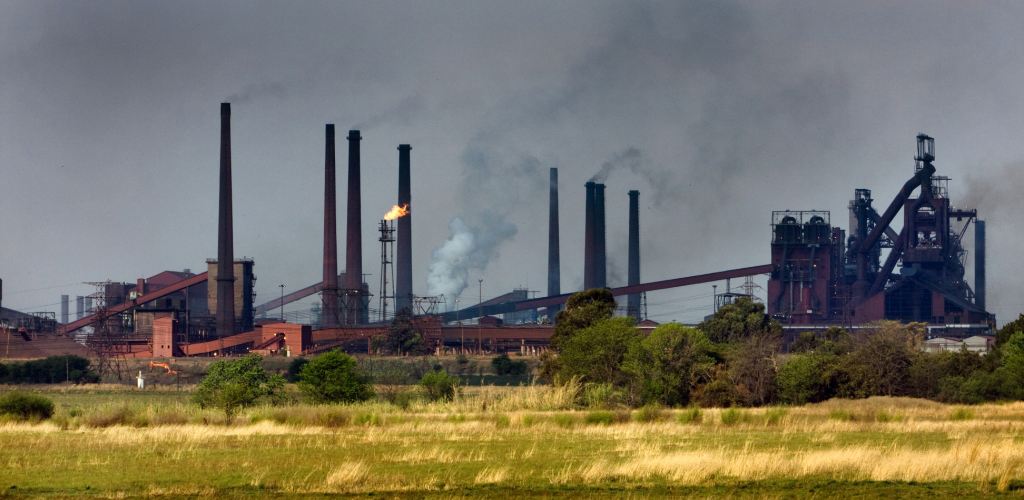Luxembourg, May 12 – ArcelorMittal needs to move beyond good intentions on environmental and social improvements and turn words into deeds. Despite its rhetoric on social responsibility, the company continues to destroy the environment, risk people’s lives and displace local communities, according to a new report launched today by the Global Action on ArcelorMittal coalition [1] to coincide with the company’s annual shareholder meeting in Luxembourg.
Comprising case studies from seven countries ranging from the Czech Republic to India and South Africa, the report also reveals new problems emerging around ArcelorMittal’s iron ore mining operations in Nimba County, Liberia, including unclear resettlement plans for local people, a lack of permanent employment from the mine, threats to the Mount Nimba Nature Reserve, and a questionable donation of 100 pick-up trucks.
“According to ArcelorMittal the trucks were meant ‘for agricultural purposes’, but they have ended up being driven around Monrovia, Liberia’s capital city, with tinted windows by members of the Liberian legislature,” according to Silas Siakor from Friends of the Earth Liberia.
“ArcelorMittal is failing to live up to its promises to Liberia,” he continues. “The lack of transparency in the management of the Community Development Fund promised to impoverished Liberian communities and threats to the Mount Nimba Nature Reserve are of serious concern when one reflects on ArcelorMittal’s track record in other countries.”
In eastern Europe and South Africa, local people report that there has been little progress in reducing the high levels of air pollution from old steelmills acquired by ArcelorMittal.
“The company’s approach in South Africa has been to organise meetings with local communities to talk about reducing pollution rather than actually doing it,” said Samson Mokoena, Coordinator of the Vaal Environmental Justice Alliance in South Africa.
“ArcelorMittal’s eastern European plants, such as those in Bosnia-Herzegovina and Kazakhstan, have benefited from more than USD 600 million in taxpayer-backed loans from the European Bank for Reconstruction and Development (EBRD) and the International Finance Corporation for environmental improvements in the last ten years. Yet there is little evidence of any absolute reduction in pollution. In Bosnia-Herzegovina it has taken three and a half years just to make an Environmental Action Plan, which has not yet been implemented,” said Pippa Gallop of CEE Bankwatch Network.
“We’ve been monitoring ArcelorMittal’s environmental and health and safety investments in Kazakhstan for several years now and nothing seems to have changed. The city of Temirtau is still choked with air pollution,” said Dana Sadykova of environmental NGO Karaganda Ecological Museum. “Thirty-five miners died in two separate incidents in ArcelorMittal’s Kazakh mines during 2008 and in spite of the EBRD-backed health and safety improvement project it is totally unclear what safety investments have been made.”
“Predictably ArcelorMittal is now using the economic crisis as an excuse to delay some of its environmental investments in the Czech Republic, but this is unacceptable,” said Jan Srytr of Environmental Law Service. “Protection against toxic pollution is not an added extra to be enjoyed during the good times – a healthy environment is a fundamental right. The company should use this period of lowered production to install improved pollution control equipment and more efficient technologies.”
***
NOTES:
[1] The new report “ArcelorMittal – Going Nowhere Slowly: A review of the global steel giant’s environmental and social impacts in 2008-2009” reviews the company’s environmental and social impacts during the year since the coalition published its first report on the company in May 2008.It is available at http://ww.globalaction-arcelormittal.org and on the Bankwatch website at: http://bankwatch.org/documents/ArcelorMittal_Going_Nowhere.pdf
The new report includes case studies from Bosnia-Herzegovina, the Czech Republic, India, Kazakhstan, Liberia, Romania and South Africa. In addition to pollution problems from existing plants the report includes case studies on two new planned investments. ArcelorMittal’s plans to build two giant steel mills in the Indian states of Orissa and Jharkhand are heavily opposed by local tribal people, who would be displaced from their land. In Romania, the company is planning to participate in the controversial Cernavoda 3 and 4 nuclear reactors using Candu-6 technology, which critics such as Greenpeace claim is outdated and dangerous.
Global Action on ArcelorMittal is a network of community and environmental groups from around the world who are working to get ArcelorMittal to invest in pollution prevention and health and safety at its steel mills and coal and iron ore mines. It includes CEE Bankwatch Network and Friends of the Earth. For more details see http://www.globalaction-arcelormittal.org
Last year’s report “In the wake of ArcelorMittal” can be found at: http://bankwatch.org/documents/mittal_local_impacts.pdf






